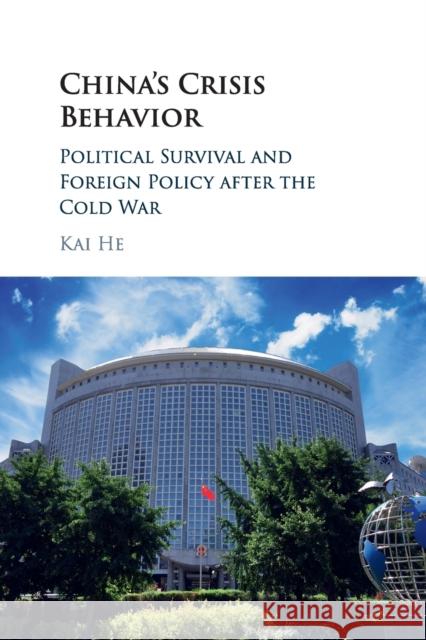China's Crisis Behavior: Political Survival and Foreign Policy After the Cold War » książka
topmenu
China's Crisis Behavior: Political Survival and Foreign Policy After the Cold War
ISBN-13: 9781316506783 / Angielski / Miękka / 2018 / 184 str.
China's Crisis Behavior: Political Survival and Foreign Policy After the Cold War
ISBN-13: 9781316506783 / Angielski / Miękka / 2018 / 184 str.
cena 154,78
(netto: 147,41 VAT: 5%)
Najniższa cena z 30 dni: 125,88
(netto: 147,41 VAT: 5%)
Najniższa cena z 30 dni: 125,88
Termin realizacji zamówienia:
ok. 22 dni roboczych.
ok. 22 dni roboczych.
Darmowa dostawa!
The first study to systematically analyse the patterns of China's foreign policy crisis behaviour after the Cold War.











